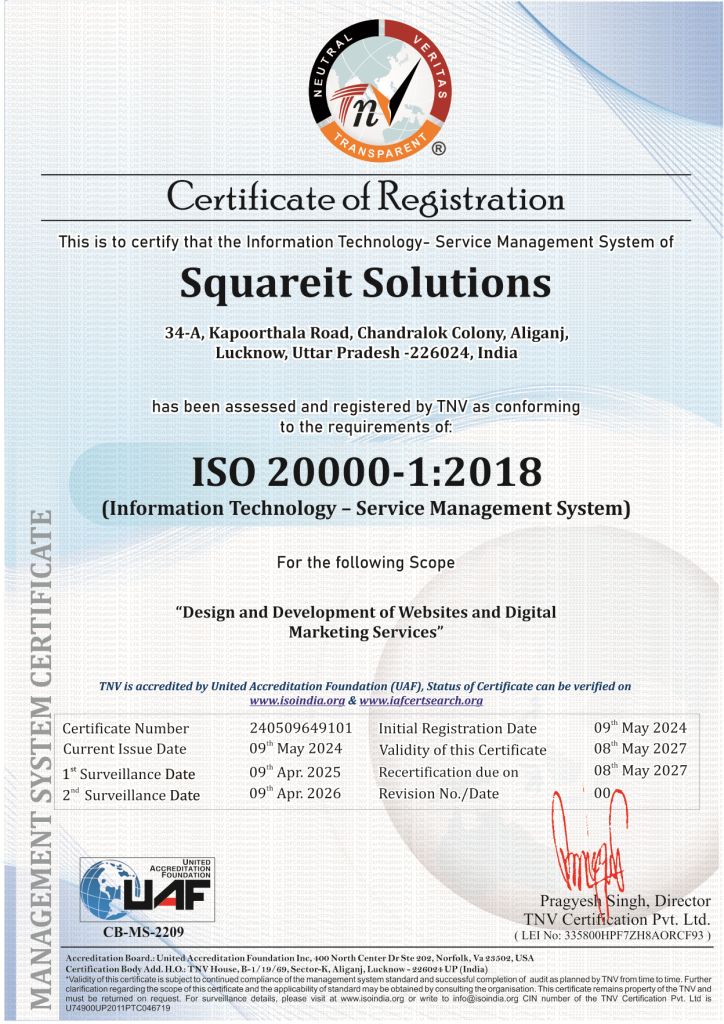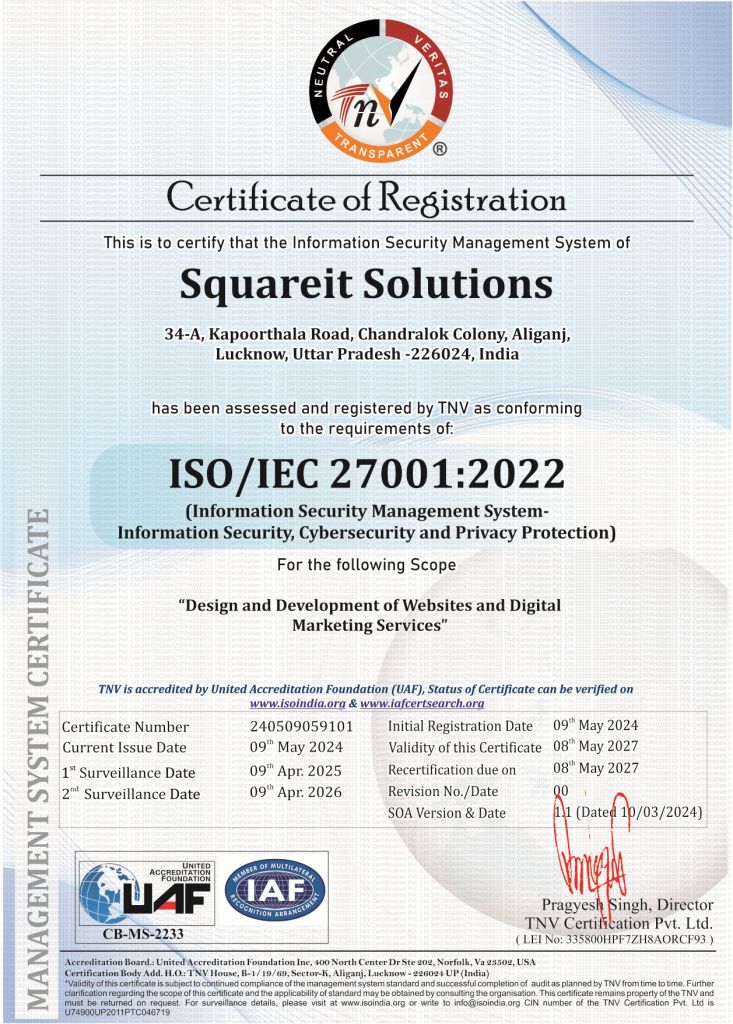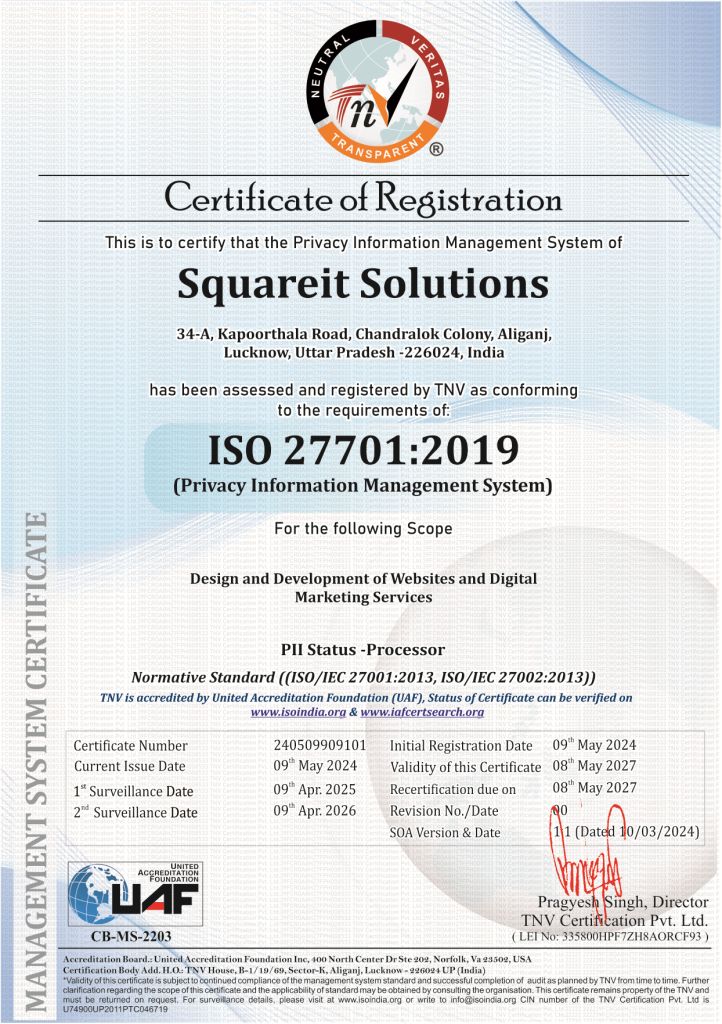SEO allows small businesses to reach their target audience at a lower cost.
Search Engine Optimization (SEO) is a cost-effective marketing strategy for small businesses. Unlike traditional forms of advertising, such as print or TV ads, SEO allows small businesses to reach their target audience at a lower cost. Small businesses that invest in SEO can gain a competitive advantage over their competitors who are not optimizing their website for search engines. By ranking higher in search engine results pages, small businesses can attract more customers, increase sales, and ultimately grow their business. A well-optimized website can build credibility and trust with potential customers. When a small business ranks high in search engine results pages (SERPs), it sends a message to potential customers that the business is reputable and trustworthy.
On-Page Optimization Techniques On Busienss Website
On-page optimization techniques such as title tags, meta descriptions, and header tags are essential for improving the visibility and ranking of a website in search engine results pages. It appears in the browser tab and is also used by search engines to understand the content of the page. To optimize title tags, use descriptive and relevant keywords that accurately reflect the content of the page. Keep the title tag length between 50-60 characters and make sure it is unique for each page.
A meta description is an HTML element that provides a brief summary of a webpage's content.
To optimize meta descriptions, use descriptive language that accurately reflects the content of the page. Keep the length between 155-160 characters, and make sure it is unique for each page.
Header Tags HTML elements that are used to structure the content of a webpage. They help search engines understand the content hierarchy of the page and improve user experience. To optimize header tags, use descriptive and relevant keywords in the H1 tag that accurately reflect the main topic of the page. Use H2, H3, etc. tags to structure the content under the H1 tag.
Overall, optimizing title tags, meta descriptions, and header tags can improve the relevance and quality of a website's content, which can lead to better rankings and increased visibility in search engine results pages.
Creating High Quality and Optimized Content for the Business
Creating high-quality and optimized content requires a combination of skills and techniques. First of all you start creating content, you need to know who your target audience is. This will help you to tailor your content to their needs, interests, and preferences.
Make sure you research your topic thoroughly. This will help you to create accurate, informative, and engaging content. Use relevant keywords throughout your content to improve its visibility in search engines. However, avoid keyword stuffing, which can hurt your search engine rankings.
Your headline is the first thing that people will see, so make it interesting and attention-grabbing. Including relevant images and videos can make your content more engaging and memorable.
Attention spans are short, so keep your content concise and to the point. Break up your content with subheadings and bullet points to make it easier to read.
Before publishing your content, make sure you edit and proofread it carefully to ensure it is error-free and well-written. Share your content on social media to increase its visibility and reach a wider audience.
By following these tips, you can create high-quality, optimized content that will engage your audience and help you achieve your goals.
Choosing Relevant Keywords for Your Business
Keywords for your business is an important step in optimizing your website for search engines. Start by understanding your target audience and their search behavior. Think about the words and phrases they might use when searching for products or services like yours. These keywords have lower search volumes but are more targeted and may be easier to rank for. Focus on keywords that match the search intent of your target audience. Consider whether they are looking for information, products, or services, and the type of content they expect to find when they perform a search. Once you have identified your keywords, track and monitor their performance. Use analytics tools to see how well your keywords are performing and adjust your strategy accordingly.
Importance of Backlinks for SEO
Backlinks are most important for SEO. When a website links to your content, it is essentially vouching for the quality and authority of your content. Search engines take this into account when ranking pages in search results.
Backlinks can also drive traffic to your website from other sources. When people click on a link to your website from another site, this is known as referral traffic. This can help increase your overall website traffic and potentially lead to more conversions.
When other websites link to your content, it can help establish your website as a credible and authoritative source in your industry or niche.
More opportunities for link building when other websites link to your content, it can also provide opportunities for further link building. For example, you may be able to reach out to other websites in your industry and ask them to link to your content, further increasing your backlink profile.
Overall, backlinks are an important part of SEO and can have a significant impact on your website's visibility, credibility, and authority.
Local SEO Strategy
A local SEO strategy can help you improve your online presence and attract more customers to your business.
This is one of the most important steps for local SEO. It allows you to control how your business appears in Google search results and on Google Maps. Make sure your listing is complete and accurate, including your business name, address, phone number, hours of operation, and website URL. Use location-specific keywords in your website content, Meta descriptions, and title tags to help Google understand the geographic relevance of your website. Positive reviews can help improve your visibility in local search results and increase consumer trust. Encourage customers to leave reviews on your Google My Business listing and other online review sites. Use social media platforms like Facebook, Twitter, and Instagram to connect with your local audience and promote your business. By following these tips, you can create a strong local SEO strategy that will help you attract more customers and grow your business.
Creating a Google My Business Profile
Creating a Google My Business profile is a great way to increase your online visibility and attract more customers to your business.Enter your business name, address, phone number, website URL, and category. Make sure this information is accurate and consistent with other online directories.Google will send you a verification code by mail, phone, or email. Once you receive the code, enter it in your Google My Business dashboard to verify your business.Add photos of your business, including your logo, interior and exterior shots, and product or service photos. Also, add a description of your business, hours of operation, and other relevant information.Encourage customers to leave reviews on your Google My Business profile. Positive reviews can help improve your visibility in local search results and increase consumer trust.Make sure to monitor your Google My Business profile regularly to respond to customer reviews, update your information, and add new photos.
By creating and optimizing your Google My Business profile, you can improve your online visibility, attract more customers, and grow your business.
Set up Google Analytics and Analyzing your Website Traffic and Performance
Setting up Google Analytics is a crucial step in tracking and analyzing your website's traffic and performance:
-
Install the tracking code: Google Analytics will provide you with a tracking code that you'll need to add to your website's HTML code. This will allow Google to track your website's traffic and performance.
-
Analyze your website's traffic: Once you've set up Google Analytics and installed the tracking code, you can start analyzing your website's traffic. You can view data such as the number of visitors, their location, the pages they visited, and how long they stayed on your site.
-
Set up goals: You can set up goals in Google Analytics to track specific actions on your website, such as form submissions or purchases.
-
Use reports to gain insights: Google Analytics provides a variety of reports that can help you gain insights into your website's traffic and performance. Some useful reports include the Audience Overview, Acquisition Overview, and Behavior Flow report.By analyzing your website's traffic and performance, you can make data-driven decisions to improve your website and drive more traffic and conversions.
Optimize Your Website
Website optimization is an important aspect of search engine optimization (SEO). Prioritize the keywords based on their relevance, search volume, and competition. Create a content plan around these keywords, and optimize your website content, including titles, meta descriptions, and headings, to improve your search engine rankings.
Your page titles and meta descriptions should accurately describe the content on your page and include your target keywords. Aim for a keyword density of around 1-2%. Also, make sure your content is high-quality, informative, and engaging. Site speed is an important ranking factor, so make sure your website loads quickly. Compress images, minify CSS and JavaScript files, and use a content delivery network (CDN) to improve your website's speed. Optimize your images by compressing them, using descriptive filenames, and adding alt tags that describe the content of the image. Make sure your website is optimized for mobile devices. Use a responsive design, compress images, and minify CSS and JavaScript files to improve your website's mobile speed. Monitor your website's performance using Google Analytics or other analytics tools. This can help you identify issues and opportunities for improvement. website optimization is an ongoing process. Continuously monitor and update your website to improve its search engine visibility and user experience.
Conclusion
In conclusion, developing a strong SEO strategy and using Google Analytics can greatly improve your website's visibility and performance. Some key components of an effective SEO strategy include optimizing your website for keywords, creating high-quality and relevant content, building quality backlinks, and utilizing local SEO tactics such as creating a Google My Business profile.Overall, developing a comprehensive SEO strategy, utilizing Google Analytics, and optimizing your website's meta title, description, and keywords can all contribute to a more successful online presence and improved website performance.
FAQs
Q1. What is seo in business?
Search Engine Optimization, is the process of improving your website's visibility and ranking in search engine results pages for relevant keywords and phrases. In business, SEO can help increase your website traffic, generate leads, and drive sales by making it easier for potential customers to find your website when they search for products or services related to your business.
Q2 Best seo for small business?
Ans. SEO involves a variety of techniques, including optimizing your website's content and structure, building quality backlinks, utilizing local SEO tactics, and analyzing website performance using tools like Google Analytics. By improving your website's search engine visibility, you can attract more qualified traffic to your website, increase your brand awareness, and ultimately drive more sales and revenue for your business.
Q3. Importance of seo for small businesses?
Ans. SEO is a cost-effective marketing strategy for small businesses because it allows them to compete with larger companies with bigger marketing.
Q4. Which steps to improve our business digitally?
Ans. Develop a comprehensive digital strategy : You need to assess your current digital capabilities, define your target audience, and set clear goals and objectives. Your digital strategy should also include plans for website development, search engine optimization (SEO), social media marketing.
Q5. What are seo keywords?
Ans.SEO (Search Engine Optimization) keywords are specific words and phrases that website owners and marketers use in their website content, metadata, and other elements to help their website appear in search engine results pages when users search for relevant topics or queries.






